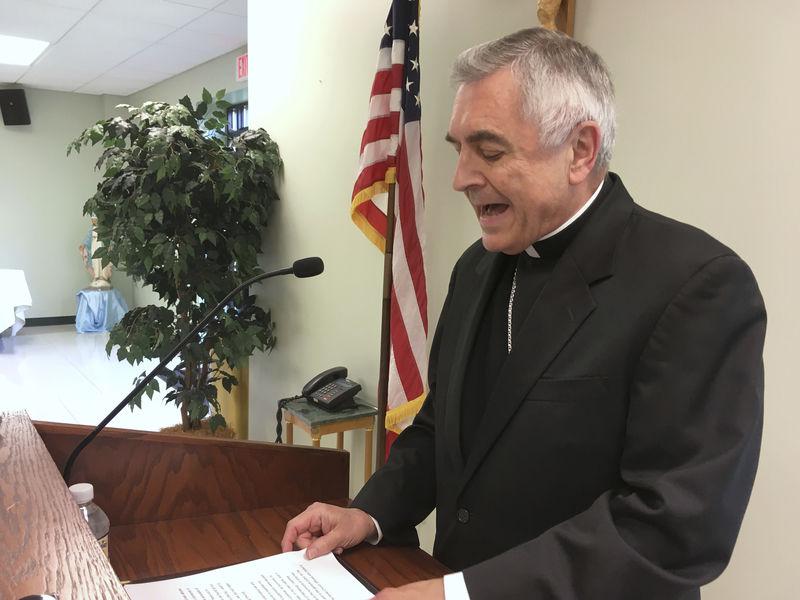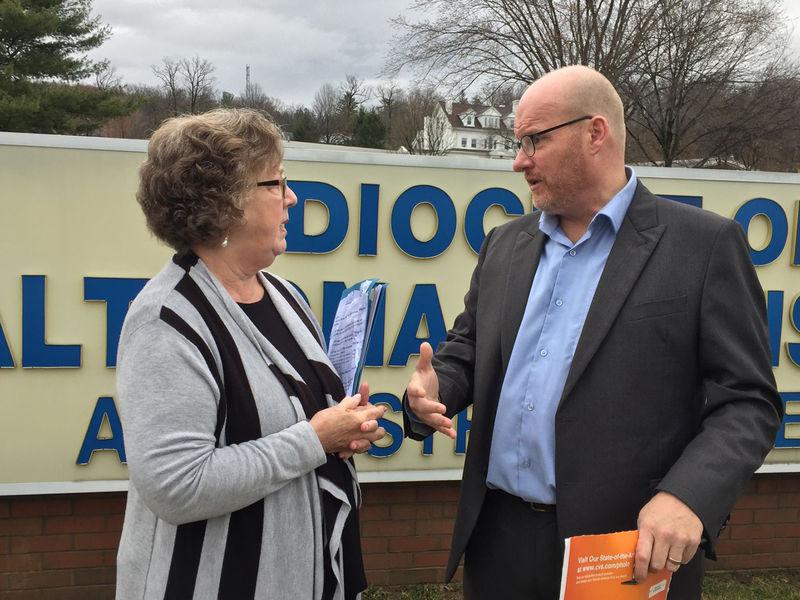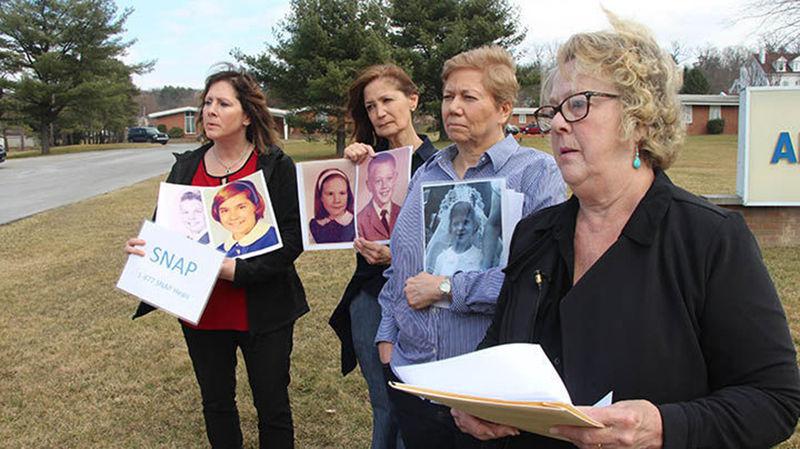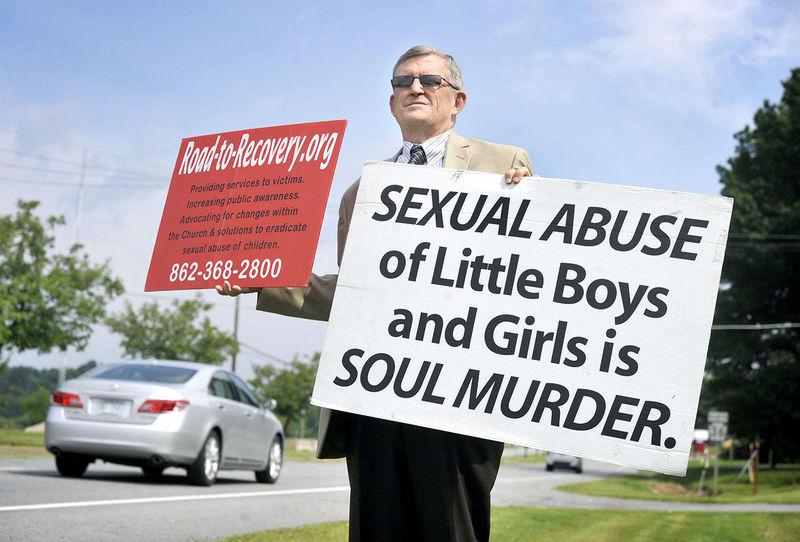|
THE COST OF ABUSE | Victims may face inconsistent rules, opportunities across dioceses
By Dave Sutor
Politics, religion, law and finances were all linked in the process that led to the creation of compensation funds for victims of clergy sexual abuse in seven of Pennsylvania's Roman Catholic dioceses. For years, when priests, parishes and dioceses faced allegations of abuse, the matters were often handled in secret — with victims being required to accept non-disclosure agreements as part of settlements. But then, in 2018, the Pennsylvania Office of Attorney General released a grand jury report that provided details about how at least 300 priests allegedly abused thousands of children across six of the commonwealth's dioceses. In response, the Philadelphia Archdiocese and dioceses in Pittsburgh, Erie, Scranton, Allentown, Harrisburg and Greensburg opened their own individual compensation funds with the goal of providing financial assistance to victims. Erie Bishop Lawrence Persico, when announcing his diocese's program earlier this year, said he wants the fund to “provide some measure of justice, closure and validation for the terrible acts that victims endured.” Harrisburg Bishop Ronald Gainer called his diocese's fund an acknowledgment that “terrible abuses did occur.” But some victims advocates have pointed out that the dioceses only started the funds after the cover-ups were publicly exposed and when legislators began considering changing the state's statute of limitations to include a two-year window during which victims could file civil claims for assaults that occurred in the past. “Victims deserve to get compensation, but what is a better scenario is if the statute of limitations gets lifted and there gets to be a window of opportunity for old cases to come forward,” said Judy Jones, a Survivors Network of those Abused by Priests (SNAP) regional leader. “We mostly think the church officials want to do the compensation thing so that people won't sue. The reason they don't want them to sue is not so much about the money. They don't have trouble spending parishioners' money. It is they don't want to go to trial.” Differences by diocese Seeking compensation can be both straightforward and nuanced, according to individuals who have dealt with the process. An alleged victim presents evidence to an independent administrator, who then makes a decision about whether abuse has occurred and then what financial award should be given. But differences exist that can require legal assistance, said Richard Serbin, a Blair County attorney who has represented victims in every Pennsylvania diocese. “It's not an easy way to maneuver what you have to do,” Serbin said. “For those individuals on their own trying it, it's not easy. There are a lot of requirements in some of these funds for what you have to do to be eligible. But some of them exclude. Some require that the abuse be sexual. Erie, for example, does not. The Scranton diocese is more encompassing. Harrisburg is not. Harrisburg has a more restrictive time limit to file the claim. "Anyone that's doing this has to look at their particular diocese where the person that abused them was associated.” Serbin said another limitation arises with claims against priests who are members of a specific order. “If it was an ordered priest that molested you, nearly every one of the dioceses excludes you from eligibility," Serbin said. "What they're essentially saying is, don't come to us, go to the order. And none of the orders — to my knowledge — have actually set up compensation funds. So those people are excluded.” 'Never about the money' The settlements no longer come with non-disclosure requirements. But applicants still have an important legal decision to make. If a claimant accepts compensation, the individual is then precluded from taking legal action against a diocese, according to Camille Biros, from the Law Offices of Kenneth R. Feinberg, who administers funds for Philadelphia, Pittsburgh, Erie, Scranton and Allentown. Lawyers and victim advocates often describe the decision — whether to accept compensation fund payment or take legal action — is one individuals must make after evaluating their abuse, mental and physical condition, and financial needs. “Each clergy sexual abuse victim must ask himself or herself whether the compensation program is going to help that victim try to heal,” said Mitchell Garabedian, a nationally known Boston-based attorney who has represented victims throughout the state, including in the Johnstown region. “Whether to enter into a compensation program is a unique, painful and personal decision for each clergy sexual abuse victim to make. “If entering into the compensation program and obtaining a settlement is a step toward healing for the clergy sexual abuse victim then the victim should enter into the compensation program. If waiting for statute of limitations law to change in order to file a civil complaint and obtain transparency through church documentation and related depositions is a step toward healing, then a victim should wait for the law to change.” Accepting money from compensation funds can bring closure and a sense of acknowledgment that abuse occurred for some victims, according to Robert Hoatson, co-founder and president of Road to Recovery. “Compensation programs work for some victims — many victims — because they don't want to go through the agony of reliving all the trauma and all the abuse again by having to explain it, even though during the compensation program sometimes they will have to maybe explain a little bit about what happened to them,” Hoatson said. “But their lawyers tend to do most of the talking at those kind of things.” Hoatson added: “Many victims are able to get closure and some money to start regaining their lives. Obviously, it's never about the money, because the money will never bring back their lives. But the money might help them to live a more stress-free life.” Opting to pursue legal action, though, could result in larger payments, such as the $2 million settlement recently reached in a case against the Erie Diocese, while giving an individual an opportunity to bring public attention to his or her case. “I have some clients that are not interested in pursuing the compensation fund,” Serbin said. “They want to wait and see what happens with Pennsylvania's law because they want to expose the wrongdoing. They feel so strongly that those leaders of the church that are responsible for protecting known child predators should be exposed and punished. "I have other clients who are emotionally so exhausted from what's come out — it's so painful because each time a story comes out it's a triggering event — that they just want to get this behind them and they're interested in pursuing the compensation fund.” Contact: dsutor@tribdem.com
|
.
Any original material on these pages is copyright © BishopAccountability.org 2004. Reproduce freely with attribution.



